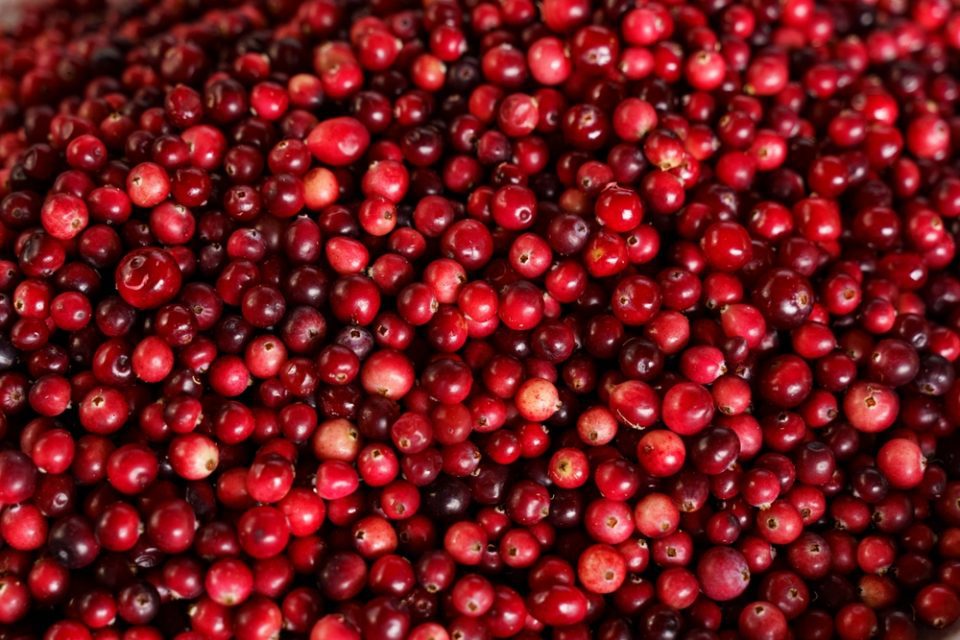Nature’s tiny warriors pack powerful health benefits beyond seasonal traditions

Understanding the power of cranberries
Cranberries are more than just a holiday treat; they’re a small but mighty fruit packed with health benefits. These tart berries have gained attention in recent years for their ability to fight harmful bacteria and provide a range of essential nutrients. Despite their small size, cranberries are powerful allies in supporting overall health, offering a natural boost for everything from urinary tract health to cardiovascular wellness. With just 46 calories per cup and made up of approximately 87% water, cranberries are an excellent, low-calorie choice for health-conscious individuals.
Nutritional profile
Cranberries may be small, but they are nutrient-dense. A single cup of cranberries provides a wide variety of essential vitamins, minerals, and antioxidants. Here’s a closer look at their nutritional breakdown:
Protein: 0.5 g
Fat: 0 g
Carbohydrates: 12 g
Fiber: 4 g
Sugar: 4 g
Vitamin C: 14 mg (19% DV)
Vitamin E: 1.32 mg (9% DV)
Vitamin K: 5 mcg (6% DV)
Manganese: 0.267 mg (15% DV)
Cranberries are a particularly good source of vitamin C, which plays a role in immune function and skin health. They also provide a significant amount of dietary fiber, making them beneficial for digestive health.
Health benefits beyond the holiday table
While cranberries are often associated with Thanksgiving and holiday meals, their health benefits extend far beyond these festive occasions. Their rich composition of vitamins, minerals, and plant compounds makes them valuable for everyday consumption. Regular intake of cranberries has been linked to several health benefits, notably in preventing urinary tract infections (UTIs). Their ability to fight bacteria and promote overall health makes them a versatile addition to any diet.
The science behind UTI prevention
One of the most well-known benefits of cranberries is their role in preventing urinary tract infections. Cranberries contain unique compounds that help prevent bacteria from adhering to the walls of the bladder. These compounds work by acidifying urine and creating an environment that is hostile to harmful bacteria, effectively preventing UTIs. However, it’s important to note that while cranberries can help prevent infections, they should not be used to treat existing UTIs. If you have an active infection, it’s important to consult a healthcare professional for proper treatment.
Cancer prevention and digestive health
Research has also suggested that cranberries may play a role in reducing the risk of certain cancers, particularly stomach cancer. The proanthocyanidins found in cranberries have been shown to suppress the growth of bacteria linked to peptic ulcers, which can increase the risk of stomach cancer. In addition, these compounds help maintain overall digestive health, contributing to better gut function and reducing the risk of digestive-related illnesses. Cranberries’ role in digestive health highlights their importance as a versatile and preventative food.
Supporting oral and cardiovascular health
Beyond digestive health, cranberries provide benefits for oral and cardiovascular health. The antioxidants in cranberries help fight bacteria that cause dental plaque and gum disease, promoting better oral hygiene. Cranberries are also beneficial for heart health. Research has found that regular consumption of cranberry juice can help lower blood pressure, contributing to improved cardiovascular function. The antioxidants in cranberries, including anthocyanins and flavonoids, play a key role in these heart-protective effects, reducing the risk of heart disease and other cardiovascular issues.
Essential compounds and their role
Cranberries are rich in beneficial plant compounds that provide a variety of health benefits. Some of the most important compounds found in cranberries include:
Quercetin: This heart-protective antioxidant helps reduce inflammation and protect cells from oxidative damage.
Myricetin: Known for its ability to protect cells from oxidative damage, myricetin plays an important role in reducing the risk of chronic diseases.
Ursolic acid: This compound offers anti-inflammatory properties, which can help reduce inflammation and prevent chronic conditions associated with inflammation.
Anthocyanins: These antioxidants contribute to blood pressure regulation and overall cardiovascular health.
Proanthocyanidins: These compounds are key to preventing urinary tract infections by inhibiting bacterial adhesion to the urinary tract walls.
Together, these compounds work synergistically to support various aspects of health, making cranberries a powerful addition to any diet.
Seasonal availability and storage
Cranberries are typically in season from late August through November, with peak availability occurring between early October and December. During this time, fresh cranberries are abundant and can be found in grocery stores. When purchasing fresh cranberries, look for firm, bright red berries with no signs of bruising or discoloration. To maximize freshness, fresh cranberries can be stored in the refrigerator for up to two months or frozen for up to a year. Freezing cranberries is an excellent way to enjoy them year-round, allowing you to incorporate them into your diet even when they’re out of season.
Incorporating cranberries into your diet
There are countless ways to incorporate cranberries into your diet throughout the year. Fresh cranberries can be blended into smoothies for a burst of tart flavor, or they can be added to baked goods like muffins, breads, and cakes. Dried cranberries are another popular option, and they make a great addition to salads, trail mixes, or oatmeal. For those looking for a convenient alternative, cranberry supplements are widely available, offering a quick and easy way to enjoy the health benefits of cranberries. However, consuming whole cranberries provides the most comprehensive health benefits, as it ensures you’re getting all of the vitamins, antioxidants, and fiber that make this fruit so nutritious.
Cranberries are a superfood that offers a range of health benefits. From their ability to prevent urinary tract infections to their positive effects on cardiovascular health and cancer prevention, cranberries should be a regular part of any diet. Whether fresh, dried, or in supplement form, cranberries can be easily incorporated into your meals, offering a simple and natural way to boost your health all year long.












